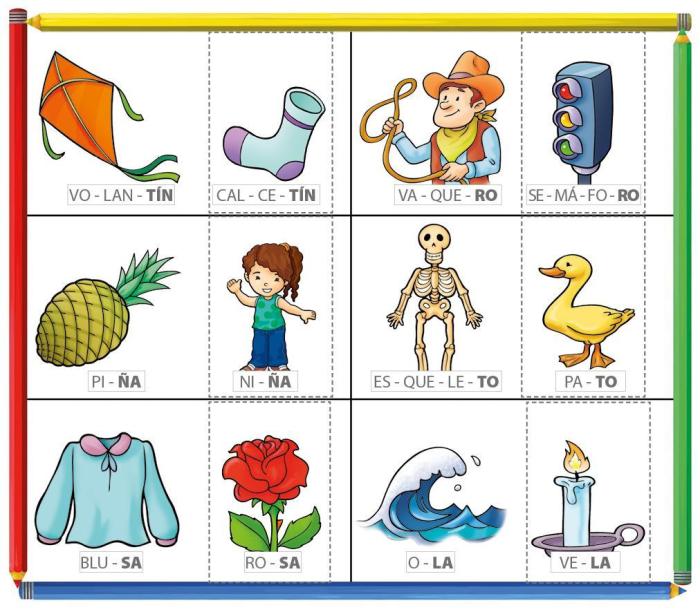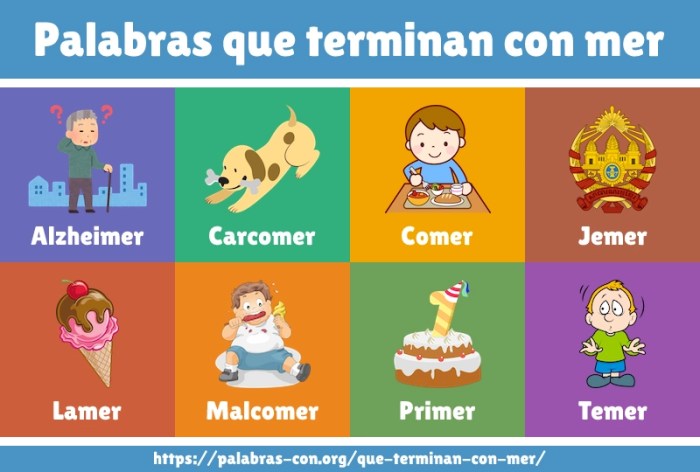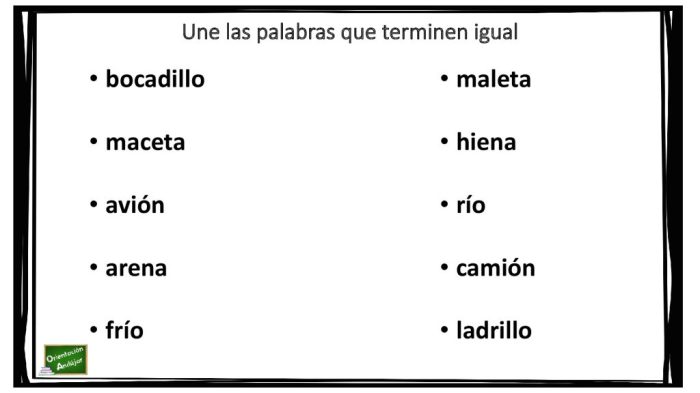Embark on a linguistic adventure with palabras que terminan con oso, unraveling their captivating presence in the Spanish language. These words, adorned with the suffix “oso,” possess a unique charm and versatility that we’re about to discover.
From their origins to their diverse applications, we’ll delve into the intriguing world of Spanish words ending in “oso,” examining their etymological roots, grammatical roles, and cultural significance.
Etymology and Origin of “oso”

The Spanish suffix “-oso” has a rich and diverse etymology, drawing influences from various languages and cultures throughout history.
Indo-European Roots
The suffix “-oso” can be traced back to the Proto-Indo-European root “*ǵʰós-os,” meaning “full of” or “characterized by.” This root is found in many Indo-European languages, including Latin, Greek, and Sanskrit. In Latin, for example, the suffix “-osus” is used to form adjectives denoting abundance or possession, such as “aquosus” (watery) and “formosus” (beautiful).
Greek Influence
The Greek language also played a significant role in the development of “-oso” in Spanish. The Greek suffix “-ωδής” (-ōdēs) was borrowed into Latin as “-odes” and subsequently into Spanish as “-oso.” This suffix is used to form adjectives that describe similarity or resemblance, such as “melódico” (melodious) and “armonioso” (harmonious).
Romance Languages
Within the Romance languages, “-oso” has become a widespread suffix used to create adjectives denoting abundance, quality, or possession. In Italian, for example, the suffix “-oso” is used in words like “generoso” (generous) and “famoso” (famous). In French, the suffix “-eux” is used in words like “joyeux” (joyful) and “nombreux” (numerous).
Examples in Other Languages, Palabras que terminan con oso
The suffix “-oso” and its cognates are found in numerous other languages around the world. Here are a few examples:
Sanskrit
“-asi” (e.g., “jñānasi” = wise)
Greek
“-ωδής” (-ōdēs) (e.g., “μελωδικός” = melodic)
Latin
When searching for words that end in “oso,” you may stumble upon a crossword clue that reads “turns to bone.” For crossword enthusiasts, this clue can be solved by clicking here . Returning to our exploration of words ending in “oso,” we can continue to discover the diverse vocabulary that this suffix offers.
“-osus” (e.g., “aquosus” = watery)
Italian
“-oso” (e.g., “generoso” = generous)
French
“-eux” (e.g., “joyeux” = joyful)
English
“-ous” (e.g., “generous” = generous)
Usage and Examples of “oso”

Words ending in “-oso” are widely used in Spanish to convey a range of meanings, from physical characteristics to personality traits and even abstract concepts. These words are often adjectives, but they can also be used as nouns in some cases.
Adjectives
As adjectives, words ending in “-oso” typically describe a quality or characteristic of a person, place, or thing. Here are a few common examples:
- Generoso(generous): A person who is generous is willing to share their possessions or time with others.
- Alegroso(cheerful): A person who is alegre is happy and optimistic.
- Peligroso(dangerous): A situation or place that is peligroso can cause harm or injury.
li> Famoso(famous): A person who is famoso is well-known and respected.
Nouns
In some cases, words ending in “-oso” can also be used as nouns. These nouns typically refer to a person or thing that possesses the quality described by the adjective form of the word. For example:
- Un generoso(a generous person): A person who is known for their generosity.
- Un famoso(a famous person): A person who is well-known and respected.
Nuances and Connotations
The use of words ending in “-oso” can convey a range of nuances and connotations. For example, the word “cariñoso” (affectionate) can be used to describe someone who is loving and caring, while the word “envidioso” (envious) can be used to describe someone who is jealous and resentful.
The context in which the word is used will determine the specific meaning and connotation.
Cultural Significance of “oso”: Palabras Que Terminan Con Oso

Words ending in “oso” hold significant cultural importance in Spanish-speaking countries, deeply embedded in the fabric of their language and artistic expressions.These words evoke a sense of familiarity and warmth, often used to describe beloved individuals or objects. In literature, they add a touch of endearment and intimacy, while in music, they create a rhythm that resonates with the soul.
Anecdotes and stories abound, showcasing the profound impact of these words on the cultural landscape.
Literature
In Spanish literature, words ending in “oso” frequently appear as terms of endearment or affection. For example, “oso” itself is often used to refer to a teddy bear, a symbol of comfort and childhood. Similarly, “cariñoso” (affectionate) and “amoroso” (loving) convey a deep sense of attachment and tenderness.
These words enhance the emotional depth of literary works, creating a connection between the characters and the reader.
Music
The rhythmic cadence of words ending in “oso” makes them particularly well-suited for music. In Spanish-language songs, these words often appear in refrains or choruses, creating a catchy and memorable melody. The repetition of the “oso” ending adds a sense of emphasis and emotional resonance, capturing the listener’s attention and leaving a lasting impression.
Anecdotes and Stories
In Spanish-speaking cultures, countless anecdotes and stories illustrate the cultural significance of words ending in “oso.” For example, the affectionate nickname “oso” is commonly given to individuals who are perceived as gentle and caring. This reflects the positive connotations associated with these words, which extend beyond their literal meanings to encompass a broader sense of warmth and endearment.
Related Concepts and Extensions

The suffix “-oso” is not the only one in Spanish that conveys a specific meaning or usage. Other Spanish suffixes that are similar to “-oso” include:
- -ero/-era:Indicates a person who performs an action or has a particular profession or characteristic.
- -mento:Indicates an action, result, or state.
- -idad:Indicates a quality or characteristic.
In addition to suffixes, Spanish also has a rich system of diminutives and augmentatives. Diminutives are used to make words smaller or less significant, while augmentatives are used to make words larger or more significant. Some common diminutive suffixes include “-ito/-ita” and “-illo/-illa,” while some common augmentative suffixes include “-ón/-ona” and “-azo/-aza.”
The suffix “-oso” can be used to create new words or modify existing ones. For example, the word “oso” (bear) can be used to create the word “osito” (little bear) using the diminutive suffix “-ito.” Similarly, the word “casa” (house) can be used to create the word “casón” (large house) using the augmentative suffix “-ón.”
Commonly Asked Questions
What is the significance of the suffix “oso” in Spanish?
The suffix “oso” often denotes a connection to bears or a bear-like quality, adding a touch of playfulness or affection to the words it modifies.
How do words ending in “oso” contribute to Spanish culture?
These words are deeply embedded in Spanish-speaking cultures, appearing in literature, music, and everyday conversations, reflecting the language’s vibrant and expressive nature.

